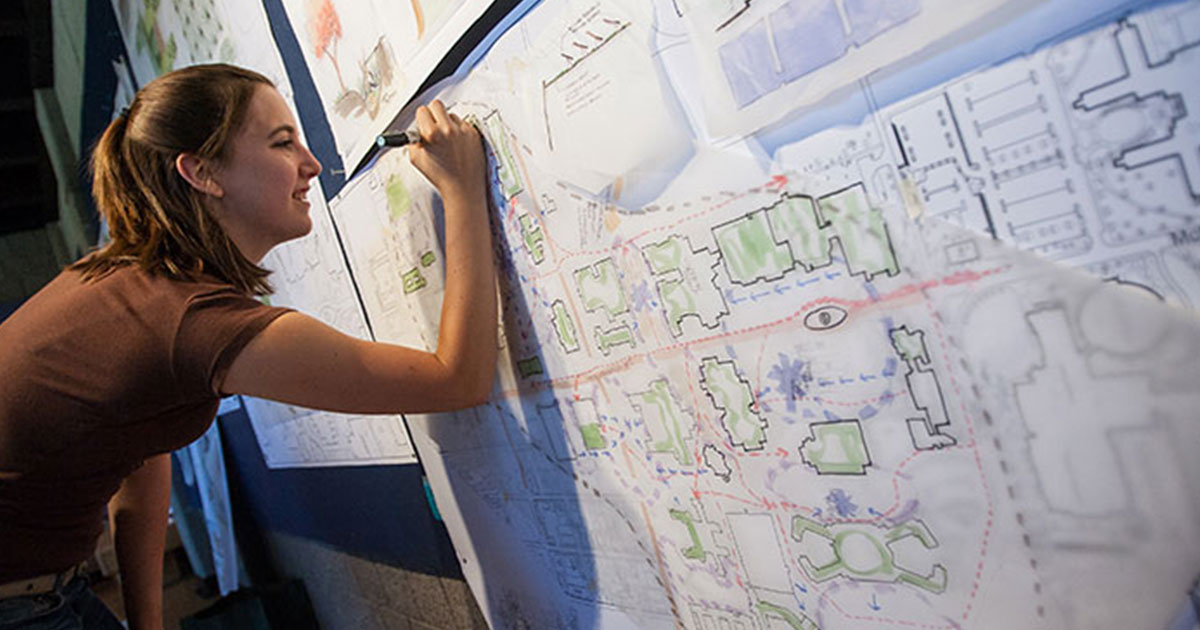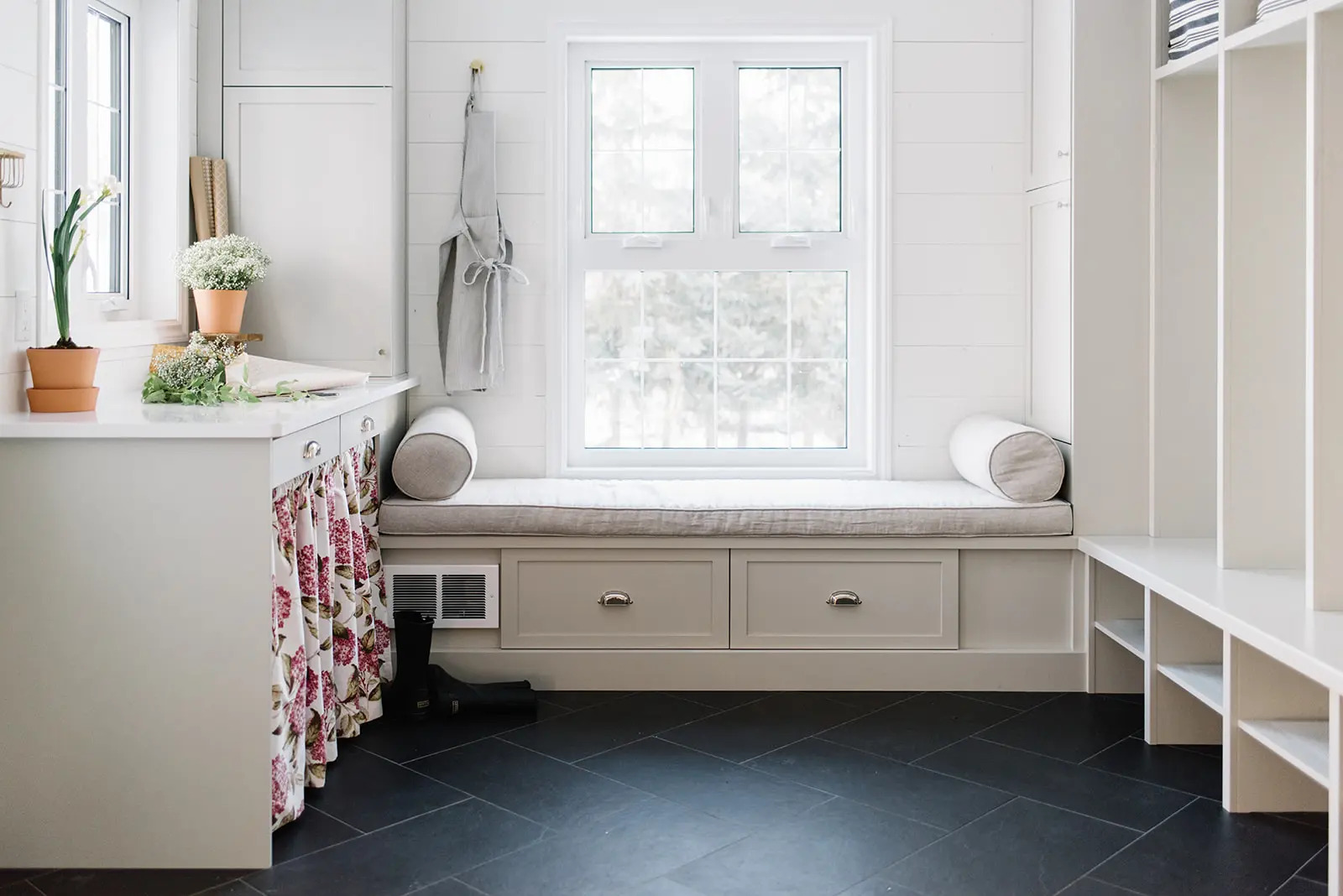Home>diy>Architecture & Design>What Degree Do You Need To Have To Design House Plans


Architecture & Design
What Degree Do You Need To Have To Design House Plans
Modified: January 9, 2024
Discover the educational requirements for designing house plans. Find out what degree you need to pursue a career in architecture design.
(Many of the links in this article redirect to a specific reviewed product. Your purchase of these products through affiliate links helps to generate commission for Storables.com, at no extra cost. Learn more)
Introduction
Designing house plans is a complex and rewarding endeavor that requires a high level of expertise and knowledge. Whether you’re dreaming of becoming an architect, civil engineer, interior designer, or construction manager, choosing the right degree can greatly impact your career prospects in the field of architecture and design.
In this article, we will explore different degree options that can equip you with the necessary skills and knowledge to excel in house plan design. We will discuss the importance of having an appropriate degree, as well as the specific degree requirements for various roles in the industry.
So, if you’ve ever wondered what degree you need to have to design house plans, keep reading to find out!
Key Takeaways:
- Pursuing a degree in architecture, civil engineering, interior design, or construction management equips you with the fundamental knowledge and technical skills required for house plan design, providing professional validation and credibility in the industry.
- While obtaining a degree is important, practical experience is essential for success in house plan design. The right degree and experience can open doors to diverse opportunities in architectural firms, engineering companies, interior design studios, and construction management firms.
Overview of house plan design
House plan design is the process of creating detailed drawings and specifications for residential buildings. It involves conceptualizing the layout, structure, and aesthetics of a house, taking into account factors such as functionality, safety, and architectural style.
A well-designed house plan considers the needs and preferences of the occupants, the site conditions, and local building codes and regulations. It includes floor plans, elevations, sections, and details that illustrate the dimensions, materials, and construction methods to be used.
House plan designers work closely with architects, engineers, interior designers, and clients to bring their vision to life. They utilize tools such as Computer-Aided Design (CAD) software to create accurate and detailed drawings that can be easily understood by construction teams.
House plan design is a meticulous and iterative process that involves multiple stages, from initial concept development to finalization of construction drawings. Designers must consider various factors such as spatial organization, room layouts, circulation, natural lighting, ventilation, and energy efficiency.
They may also incorporate sustainable design principles to minimize the environmental impact of the building. As aesthetics play a crucial role in house plan design, designers must have a keen eye for proportion, scale, balance, and harmony to create visually appealing and functional spaces.
With the advancement of technology, house plan design has become more streamlined and efficient. 3D modeling and virtual reality tools allow designers and clients to visualize and experience the design before it is built, helping to identify potential issues and make informed design decisions.
Overall, house plan design requires a combination of artistic flair, technical knowledge, and attention to detail. Obtaining an appropriate degree in architecture, civil engineering, interior design, or construction management can provide you with the necessary skills and understanding to excel in this field.
Importance of an appropriate degree
Having an appropriate degree is crucial in the field of house plan design. It not only demonstrates your commitment to the profession but also provides you with the necessary foundation and expertise to tackle the complexities of designing functional, safe, and aesthetically pleasing house plans.
Here are a few reasons why an appropriate degree is important:
- Knowledge and Skills: Pursuing a degree in architecture, civil engineering, interior design, or construction management equips you with the fundamental knowledge and technical skills required for house plan design. You will gain a solid understanding of architectural principles, structural systems, building codes, materials, and construction techniques.
- Professional Validation: Holding a degree in a relevant field provides professional validation and credibility. It demonstrates to clients, employers, and industry peers that you have undergone proper training and are equipped to handle the complexities of house plan design.
- Industry Network: Studying for a degree gives you the opportunity to build valuable relationships within the industry. You can connect with professors, classmates, and industry professionals who can serve as mentors, collaborators, or potential employers in the future.
- Continued Learning: The pursuit of a degree is not just limited to the duration of your studies. It fosters a mindset of continued learning and professional development. The knowledge and skills gained during your degree can form a solid foundation for further specialization and growth in your career.
- Employment Opportunities: Many employers in the field of house plan design prioritize candidates with relevant degrees. By having an appropriate degree, you increase your chances of securing employment in architectural firms, engineering companies, interior design studios, or construction management firms.
While a degree is important, it is worth noting that experience and practical skills are also essential in the field of house plan design. It is crucial to combine theoretical knowledge with practical experience, such as internships, apprenticeships, and real-world projects, to enhance your skills and adaptability in the industry.
In the following sections, we will explore the degree requirements for different roles in house plan design, including architecture, civil engineering, interior design, and construction management.
Architectural degree requirements
If you aspire to become an architect and design house plans, obtaining an architectural degree is essential. Architectural programs provide a comprehensive education that combines art, science, and technology to prepare you for a career in architecture.
To pursue an architectural degree, you will typically need to meet certain requirements:
- Educational Background: Most architectural programs require applicants to have a high school diploma or its equivalent. Some universities may also consider students with a background in mathematics, physics, and design-related subjects.
- Portfolio and Admission Tests: Along with meeting the educational requirements, you may be required to submit a portfolio showcasing your design skills, creativity, and previous work. Additionally, some architectural programs may require you to take admission tests, such as the Architectural Registration Exam (ARE) or the Graduate Record Examination (GRE).
- Undergraduate or Graduate Degree: Architectural programs are typically offered at undergraduate and graduate levels. A Bachelor of Architecture (B.Arch) is a five-year professional degree program, while a Master of Architecture (M.Arch) is a two to three-year program designed for students with a non-architectural undergraduate degree.
- Curriculum: The curriculum for an architectural degree includes a combination of design studios, architectural history and theory, building systems, structural analysis, construction technology, and professional practice. You will also gain hands-on experience through design projects and internships.
- Licensure: After completing the required degree program, aspiring architects need to pursue licensure by completing the Architectural Experience Program (AXP) and passing the Architect Registration Examination (ARE). Licensure requirements vary by country or state.
It’s worth noting that obtaining a professional architectural degree allows you to practice as a licensed architect. It opens doors to diverse career opportunities, including working in architectural firms, urban planning agencies, construction companies, or even starting your own architectural practice.
Architectural degrees provide a strong foundation in design theory, technical knowledge, and critical thinking, enabling you to create innovative and visually appealing house plans that meet the functional needs of the occupants while adhering to building codes and sustainability principles.
Next, let’s explore the degree requirements for civil engineering, which also plays a crucial role in house plan design.
Civil engineering degree requirements
In the realm of house plan design, civil engineers play a vital role in ensuring the structural integrity, safety, and functionality of buildings. Pursuing a degree in civil engineering can provide you with the necessary knowledge and skills to excel in this field.
Here are the typical requirements to pursue a civil engineering degree:
- Educational Background: Most civil engineering programs require applicants to have a high school diploma or its equivalent, with a strong foundation in mathematics, physics, and chemistry. Some universities may also require specific prerequisite courses.
- Admission Tests: Depending on the institution, you may need to take standardized tests, such as the SAT or ACT, for undergraduate admission. For graduate-level programs, you may be required to take the Graduate Record Examination (GRE).
- Undergraduate or Graduate Degree: Civil engineering programs are offered at both undergraduate and graduate levels. A Bachelor of Science in Civil Engineering (B.S.C.E) is a four-year program that provides a broad understanding of civil engineering principles. A Master of Science in Civil Engineering (M.S.C.E) is available for those looking for advanced studies or research opportunities.
- Curriculum: The curriculum for a civil engineering degree typically includes courses in structural analysis, geotechnical engineering, transportation engineering, environmental engineering, and construction management. You will also have laboratory sessions and design projects to gain hands-on experience.
- Licensure: To practice as a professional civil engineer, you will need to meet the licensure requirements of the country or state in which you intend to work. This typically involves completing a specified number of years of work experience and passing the Professional Engineering (PE) exam.
A civil engineering degree equips you with the technical expertise to design the structural elements of a house plan, including the foundation, walls, columns, beams, and roof. You will also learn about the principles of construction materials, building codes, and regulations that dictate the design and construction process.
Collaboration between architects and civil engineers is crucial in ensuring that the design is structurally sound and meets all safety requirements. The civil engineer’s role is to analyze the loads and forces acting on the structure, determine the appropriate materials and construction methods, and ensure that the design can withstand environmental conditions and potential hazards.
Next, let’s explore the degree requirements for interior design, which focuses on creating aesthetically pleasing and functional interior spaces.
A degree in architecture or architectural engineering is typically required to design house plans. Additionally, gaining experience through internships or entry-level positions can be beneficial for career advancement.
Interior design degree requirements
In the realm of house plan design, interior designers play a crucial role in creating functional and aesthetically pleasing living spaces. Pursuing a degree in interior design can provide you with the necessary knowledge and skills to excel in this field.
Here are the typical requirements to pursue an interior design degree:
- Educational Background: Most interior design programs require applicants to have a high school diploma or its equivalent. Some institutions may also require a portfolio showcasing your creativity, design skills, and previous work.
- Admission Tests: Depending on the institution, you may need to showcase your artistic abilities through tests or interviews. For example, you might be asked to complete a drawing or design exercise as part of the admission process.
- Undergraduate Degree: Interior design programs are typically offered at the undergraduate level. A Bachelor of Fine Arts (B.F.A) or Bachelor of Science (B.S) in Interior Design is a common degree option.
- Curriculum: The curriculum for an interior design degree includes courses in design theory, color theory, space planning, furniture design, lighting design, materials, and construction techniques. You will also gain practical experience through design studios and internships.
- Optional Certification: While not always required, some interior designers choose to pursue certification to enhance their professional credentials. The National Council for Interior Design Qualification (NCIDQ) offers an examination that, when passed, leads to certification as a Registered Interior Designer.
An interior design degree provides you with the knowledge and skills to transform a house into a functional and visually appealing home. You will learn about space planning, furniture arrangement, color schemes, lighting design, and the selection of materials and finishes.
Interior designers work closely with clients to understand their needs, preferences, and lifestyle. They incorporate these factors into the design process to create personalized spaces that reflect the clients’ tastes and enhance their quality of life.
Collaboration between architects, interior designers, and other professionals is crucial in ensuring a harmonious integration of the house’s interior and exterior design. Interior designers work with the architectural plans to determine the best placement of walls, windows, doors, and other architectural elements to optimize space utilization and functionality.
Next, let’s explore the degree requirements for construction management, which focuses on overseeing the construction process of house plans.
Construction management degree requirements
In the realm of house plan design, construction managers play a vital role in overseeing the construction process and ensuring that projects are completed on time, within budget, and to the desired quality standards. Pursuing a degree in construction management can provide you with the necessary knowledge and skills to excel in this field.
Here are the typical requirements to pursue a construction management degree:
- Educational Background: Most construction management programs require applicants to have a high school diploma or its equivalent. Some institutions may prefer students with a strong background in mathematics, physics, and engineering-related subjects.
- Admission Tests: Depending on the institution, you may need to take standardized tests, such as the SAT or ACT, for undergraduate admission. For graduate-level programs, you may be required to take the Graduate Record Examination (GRE).
- Undergraduate or Graduate Degree: Construction management programs are available at both undergraduate and graduate levels. A Bachelor of Science (B.S) in Construction Management is a four-year program that provides a comprehensive understanding of construction principles, project management, and construction technology.
- Curriculum: The curriculum for a construction management degree typically includes courses in project management, construction methods, cost estimating, contract administration, scheduling, building codes, and safety regulations. You will also gain practical experience through internships and construction site visits.
- Optional Certification: While not always required, obtaining certification from professional organizations, such as the Construction Management Association of America (CMAA), can enhance your credentials and demonstrate your expertise in the field.
A construction management degree equips you with the knowledge and skills to effectively plan, organize, and manage the construction process of house plans. You will learn how to coordinate with architects, engineers, subcontractors, and suppliers to ensure that the design is executed smoothly and according to the specified requirements.
Construction managers oversee various aspects of the construction process, including coordinating schedules, managing budgets, procuring materials, monitoring quality control, and ensuring compliance with building codes and safety regulations. They play a crucial role in mitigating risks and resolving any issues that may arise during the construction phase.
Collaboration between construction managers and other professionals, such as architects and interior designers, is essential to ensure that the house plans are translated into a well-executed and successful construction project.
Now that we have explored the degree requirements for various roles in house plan design, let’s move on to other relevant degree options that can also be beneficial in this field.
Other relevant degree options
While degrees in architecture, civil engineering, interior design, and construction management are the most common paths to pursue a career in house plan design, there are other relevant degree options that can also provide valuable skills and knowledge in this field.
Here are a few other degree options to consider:
- Urban Planning: A degree in urban planning focuses on designing and developing urban areas, including residential neighborhoods. Urban planners work to create sustainable, functional, and aesthetically pleasing communities, taking into account factors such as transportation, land use, and zoning regulations.
- Landscape Architecture: Landscape architecture involves the design and planning of outdoor spaces, such as gardens, parks, and public areas surrounding residential buildings. A degree in landscape architecture can provide you with the skills to integrate nature and green spaces into house plan designs, enhancing the overall quality of the built environment.
- Environmental Design: An environmental design degree focuses on sustainable and eco-friendly design principles. It explores ways to minimize the impact of buildings on the environment, considering factors such as energy efficiency, resource conservation, and materials selection. This degree can be valuable in creating house plans that prioritize sustainability and environmental stewardship.
- Industrial Design: Industrial design involves the design of consumer products and everyday objects. While it may not be directly related to house plan design, a degree in industrial design can provide valuable skills in product aesthetics, ergonomics, and functionality. These skills can be transferred and applied to the design of interior spaces within house plans.
- Construction Engineering: Construction engineering combines elements of civil engineering and construction management. It focuses on the technical and management aspects of construction projects, including cost estimation, scheduling, and materials selection. A degree in construction engineering can be beneficial in overseeing the construction process of house plans.
These degree options provide opportunities to explore different aspects of the design and construction industry. They offer unique perspectives that can complement the knowledge and skills gained through traditional degree paths.
Ultimately, the choice of degree depends on your specific interests, strengths, and career goals. It’s important to carefully evaluate the curriculum, specialization options, and career prospects of each degree program to ensure that it aligns with your aspirations in house plan design.
Now, let’s conclude our discussion on the importance of an appropriate degree in house plan design.
Conclusion
Designing house plans is a complex and rewarding endeavor that requires a high level of expertise and knowledge. Choosing the right degree can greatly impact your career prospects in the field of architecture and design.
Having an appropriate degree is crucial as it provides you with the necessary foundation and expertise to tackle the complexities of designing functional, safe, and aesthetically pleasing house plans. Whether you pursue a degree in architecture, civil engineering, interior design, or construction management, each discipline brings unique perspectives and skills to the table.
An architectural degree equips you with the artistic flair and technical knowledge necessary for spatial planning, while a civil engineering degree provides the structural expertise required to ensure the safety and integrity of the house plans. On the other hand, an interior design degree focuses on creating personalized and visually appealing living spaces, while a construction management degree oversees the successful execution of the construction process.
In addition to these core degrees, other relevant degree options such as urban planning, landscape architecture, environmental design, industrial design, and construction engineering can also offer valuable skills and perspectives in house plan design.
While obtaining a degree is important, it’s worth noting that a combination of theoretical knowledge and practical experience is crucial for success in the field. Internships, apprenticeships, and real-world projects can further enhance your skills and adaptability.
With the right degree and experience, you can open doors to diverse opportunities in architectural firms, engineering companies, interior design studios, construction management firms, and more. The field of house plan design offers endless possibilities to create functional, sustainable, and visually stunning spaces that meet the needs and desires of the occupants.
So, if you’re passionate about designing house plans, carefully consider the degree options available and choose the one that aligns with your interests and career goals. Embrace the journey of continuous learning and professional development, and let your creativity and expertise shape the future of residential design.
Frequently Asked Questions about What Degree Do You Need To Have To Design House Plans
Was this page helpful?
At Storables.com, we guarantee accurate and reliable information. Our content, validated by Expert Board Contributors, is crafted following stringent Editorial Policies. We're committed to providing you with well-researched, expert-backed insights for all your informational needs.















0 thoughts on “What Degree Do You Need To Have To Design House Plans”